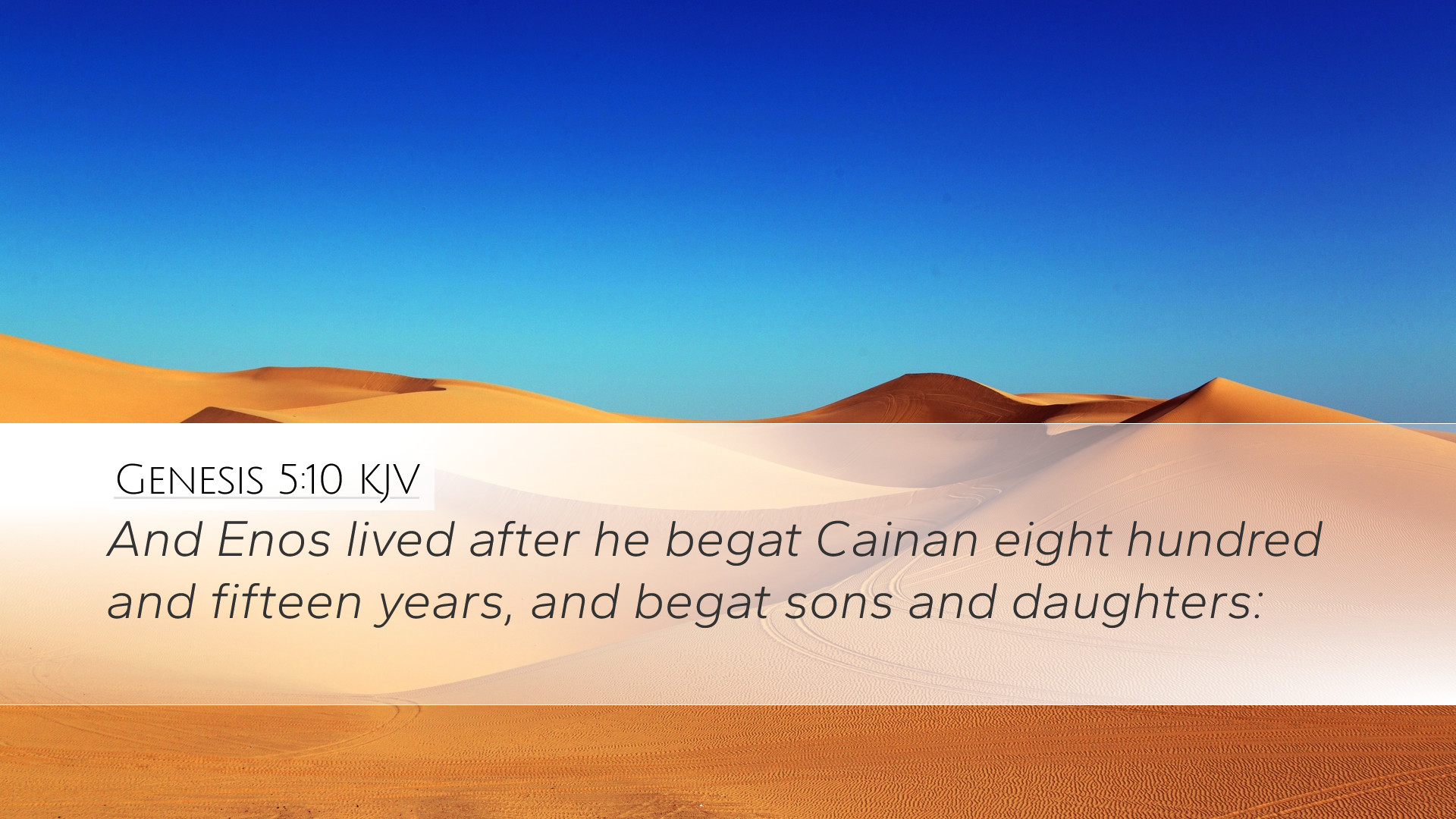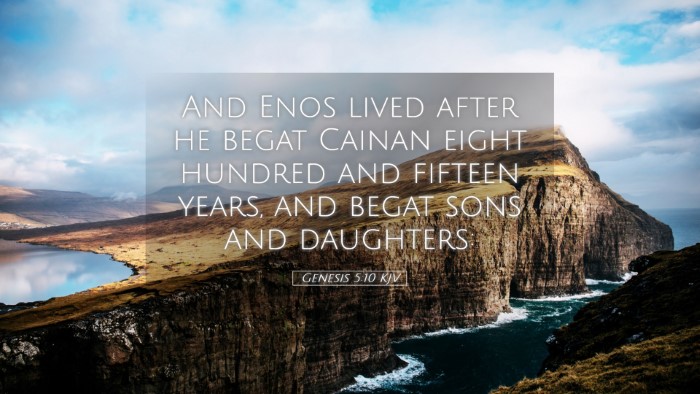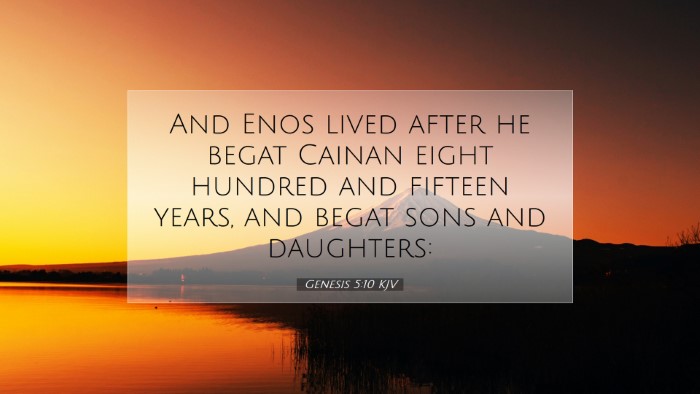Commentary on Genesis 5:10
Verse: "And Methuselah lived an hundred eighty and seven years, and begat Lamech."
Introduction
This verse marks a significant point in the genealogical record of Genesis, highlighting Methuselah, the longest-living human according to the biblical account. Through the insights of renowned Biblical scholars including Matthew Henry, Albert Barnes, and Adam Clarke, we will explore the implications of Methuselah's life and lineage, as well as the theological and historical significance embedded within this passage.
Historical Context
Genealogical Importance: The genealogy in Genesis 5 serves not only as a record of lineage but also illustrates the faithfulness of God through the generations. It establishes a continuous line from Adam to Noah, highlighting God’s covenantal promise.
Moreover, Methuselah serves as a pivotal figure in this lineage, as his lifespan exemplifies God's patience and mercy.
Methuselah's Lifespan
- Longevity: Methuselah lived to be 969 years old, a detail that has intrigued scholars and theologians alike. His prolonged life can be viewed as a divine indication of God's grace, allowing for repentance and reflection.
- Symbolism of Yearning: The name "Methuselah," which may be interpreted as "his death shall bring," suggests a prophetic significance that correlates with the imminent flood. His exceptional lifespan serves as a reminder of God's judgement and the impending necessity for salvation.
Lamech's Birth
Connection to Prophecy: When Methuselah fathered Lamech after 187 years, it traces the lineage toward Noah, a critical figure in God’s plan of redemption. Lamech's birth is significant as he is not only a link in the genealogy but also bears a name that means "sorrow" or "lamentation."
Theological Reflection: This connection introduces the theme of hope amid impending judgment, culminating with Noah, who would later embody hope and restoration through the ark.
Commentary Insights
Matthew Henry: In his commentary, Henry emphasizes the role of Methuselah as an enduring witness to God's promises and judgments. Echoing throughout generations, Methuselah’s life invites reflection on the eternal nature of God’s covenant.
Albert Barnes: Barnes highlights the act of "begat" as essential in the biblical genealogies, which not only signifies biological parentage but also reflects the responsibilities and spiritual inheritance transferred from one generation to the next.
Adam Clarke: Clarke provides valuable observations on the naming practices of the time, noting the prophetic significance behind Methuselah’s name and its implications for understanding the broader narrative of creation and fall.
Theological Implications
- Divine Patience: The extended life of Methuselah exemplifies God's desire for humankind to turn toward Him in faith, reiterating His patience before the flood.
- Legacy of Faith: Each name in the genealogical line illustrates God's hand in history, showcasing His faithfulness from generation to generation.
- Redemptive History: The connection between Methuselah and Lamech stresses the importance of genealogies in scripture as vehicles of God's plan leading ultimately to redemption through Christ.
Conclusion
Genesis 5:10 serves as an entry point into the profound themes of life, judgment, and redemption found throughout Scripture. As Methuselah stands as a beacon of divine grace within a broken world, scholars and believers are called to reflect on the implications of his existence for their faith journey. The lineage culminating in Noah embodies the ever-present hope of God's promises, encouraging believers to remain steadfast in faith as they navigate their spiritual paths.


